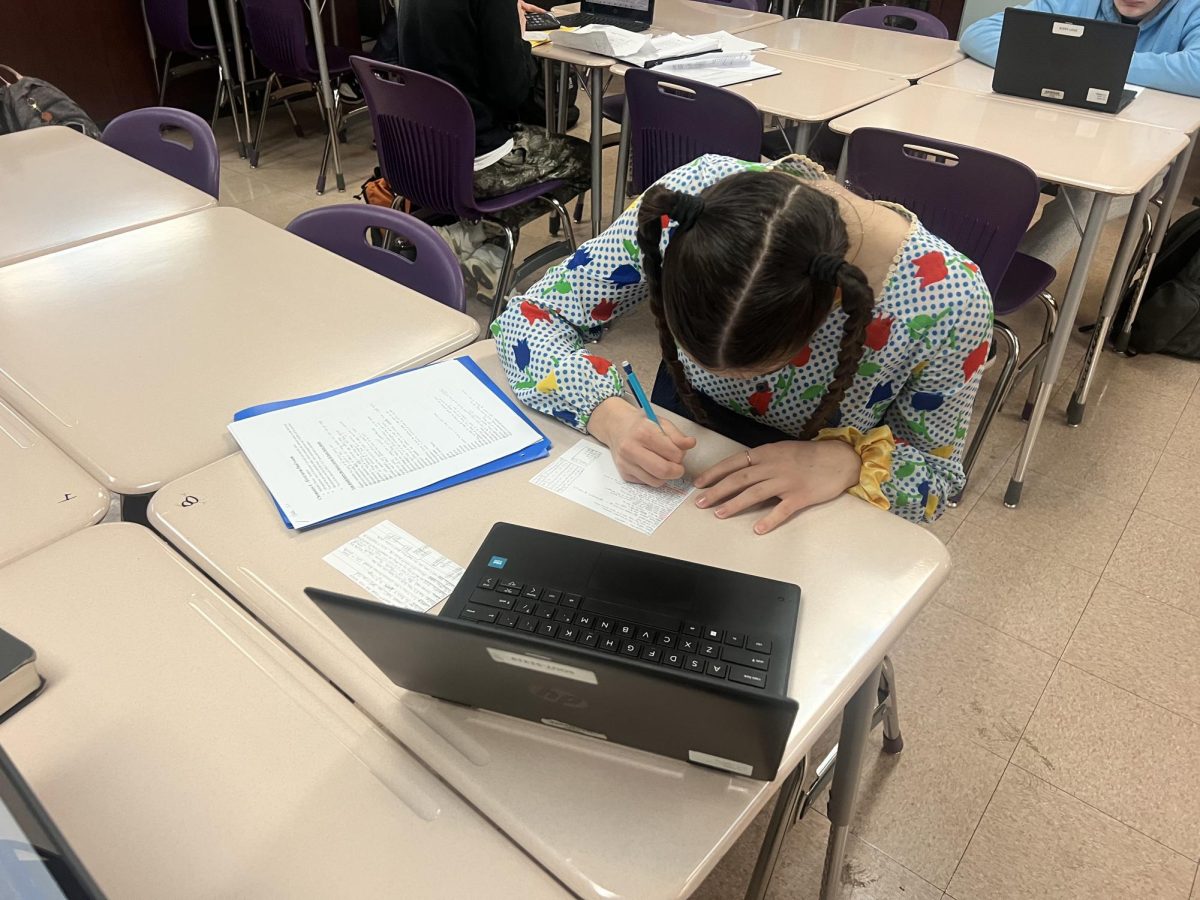Students of BHSS have no end to their complaints about the troublesome and clunky devices they are issued at the beginning of their high school careers. However, these mammoth machines might be saving students in ways they haven’t come to realize yet.
A 2013 study done in India came to the conclusion that increased backpack weight leads to posture issues in children. A similar 2015 Indian study observed that many parents were unaware of the musculoskeletal disorders caused by their children’s backpacks.
Just like students and parents in India, Americans are also feeling the effects of heavy backpacks, with news outlets like TIME and ABC News publishing articles about the issue. Of course, the obvious reason for the weight of our backpacks is the amount of books we have to carry, which increases as we get to high school and take more difficult classes.
Junior Esther Winterman knows all about these troubles, as she suffers from scoliosis. While she prefers to learn by reading paper textbooks, she finds that carrying four or five of them around all day do nothing beneficial for her back. “Because of my scoliosis, I often have severe hip pains when I’m walking and while the laptops are heavy, a backpack full of books only makes it worse,” Winterman explained.
Like most students, she also rarely uses her locker and depends fully on her backpack to carry her school supplies, but not because she prefers to. “I honestly rarely have time to stop [at my locker] between classes because of the length of passing periods.”
Not only do online books save our parents a fortune in chiropractic fees, they are also a more eco friendly approach to learning. AP Environmental Science teacher and sponsor of S.A.G.E. (Students Advocating for a Greener Environment) Amanda Figolah weighed in on how using online books is better for the environment.
“The use of paper is definitely decreased in not ordering a book for each student. I love the accessibility of online textbooks for students, combined with Canvas as a tool for teaching students how to manage class content and feel empowered,” Figolah said. “These tools help students control their learning environment to a greater extent instead of waiting for teachers to hand out the next surprise.”
Figolah also recalled how her APES class discussed the idea of “going paperless” as computers have been phased in the past couple of years.
However, she still agreed that old fashioned face-to-face collaboration is important as well.
“While assignments, practice worksheets, and article links are wonderful online, there are some tasks that I feel are best completed in class and on paper. Having a screen between group members changes the social dynamic and I think we need to keep basic social etiquette alive through practice. Looking a classmate in the eye, shaking hands, sharing ideas and listening are all skills that I believe are best executed without technology.” Figolah explained.
While online books seem to be becoming more popular and common, there are still many teachers and students who prefer the print version. Signing up online, remembering passwords, and general computer difficulties stand in the way for many people to become comfortable with using online books. Many people also study better for long periods of time without having to stare into the soulless face of their device screen.
Whether you’re for, against, or indecisive on the issue of online books, you may just have to admit that you love your device just a little bit more.




